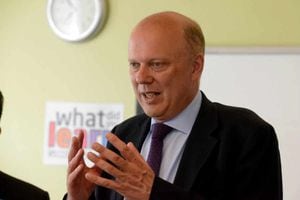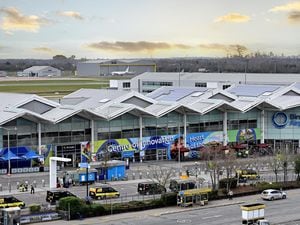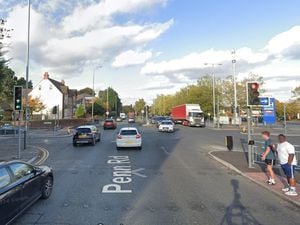We didn't want to cut legal aid, says Justice Secretary
The Justice secretary admitted he did 'not wish to cut' legal aid but it was necessary to lower public spending.

Chris Grayling was speaking to law students as he visited Walsall College yesterday.
The Government has cut around £700 million from the legal aid bill which helps members of the public towards solicitor and barrister costs.
He said: "I would not wish to cut legal aid. When we came into government the country was borrowing £1 of every £4 it was spending. That clearly could not continue.
"We still have the most expensive legal aid system in the world with by far the most expensive per person. It was never realistic for it to carry on at that level. We were spending £2.2bn a year and that has gone down to £1.5bn.
"People arrested and charged with a crime will always have access to a lawyer to defend them. That has always been the case and always will.
"What we cannot afford to do is to fund as many parts of the civil system."
The college had representatives from all parties at a politics day where students were encouraged to register and use their vote. Cuts to the courts were this month condemned by retiring Recorder of Stafford Simon Tonking who said there was a 'chronic under funding' with unbearable workloads.
Mr Grayling, who is also the Lord Chancellor, said courts needed to modernise.
He said: "Difficult funding decisions have to be made for the day-to-day running of the courts. But we are investing £500m capital so we can transform our justice system from a being based on huge bundles of paper to a digital one which can save money and time massively. As we have less money to spend we have to be smarter."
He appeared to rule out granting greater powers to Police and Crime Commissioners over other parts of the criminal justice sector. He said: "It is difficult to do everything on a local level. Probation covers a larger area than the police force areas. What we need to do is make all the different parts of the system so they fit in and connect with each other smoothly.
"That means greater sharing so that key bits are evidence are stored and accessible not just by the police but also the Crown Prosecution Service and the defence counsel.
"It means reducing hearings and using more video conferencing. I think Police and Crime Commissioners have done a very good job but we want them to concentrate on police work."
Mr Grayling also said controversial private-run prison HMP Oakwood in Featherstone was improving. He said: "Oakwood has had a bad press which is not unusual for a new prison. If you speak to prison governors regardless of if they worked in public or private prisons they will tell you it takes time to sort things out. If you look at HMP Parc in Wales it had similar issues as Oakwood and is now seen as one of the best performing prisons. Oakwood is seen as getter better and getting praise."
Mr Grayling urged students to vote for Conservative candidates Douglas Hansen-Luke in Walsall North and Sue Arnold in Walsall South who are both fighting marginal Labour-held seats.
Mr Hansen-Luke said: "It is important that young people vote – that is a fundamental part of our democracy."
Mrs Arnold added: "Walsall is in need of a shake-up and I will work to give a local voice for the town in Westminster."
Commenting on Mr Grayling's visit, Labour's Walsall North candidate David Winnick said: "Whenever the Government sends Cabinet members to my constituency my popularity seems to go up so I very much welcome the Lord Chancellor to Walsall."
Walsall College director June Morrow said: "This is the first time that some students have every engaged in politics, so events are as neutral as possible and provide unbiased information."





